The 1st Biomedical Innovation Workshop 2012 Report
Apr. 13, 2012
日本語ページへ
The 1st Biomedical Innovation Workshop 2012 Program
Biomedical Innovation Workshop 2012
A Vision for Global Regulatory Harmonization in Promoting Biomedical Innovation

Opening Remarks
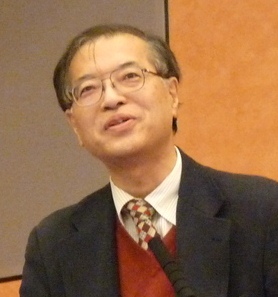
Prof. Norio Higuchi
Professor, Graduate School of Law and Politics, the University of Tokyo
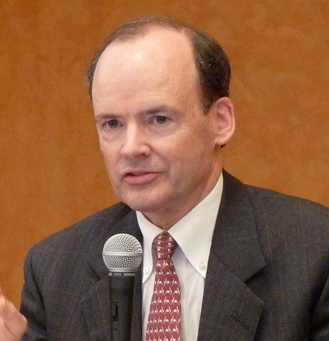
Keynote Speech
Mr. Michael Gropp
(GHTF)
Handout:International Regulatory Harmonization and Medical Technology Innovation
Panel Discussion
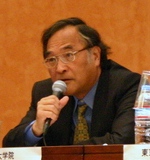
Prof. Ryozo Hayashi
Visiting Professor, Graduate School of Public Policy (GraSPP), the University of Tokyo
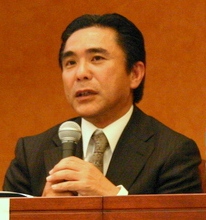
Prof. Akio Onishi
Visiting Professor, Graduate School of Public Policy (GraSPP), the University of Tokyo
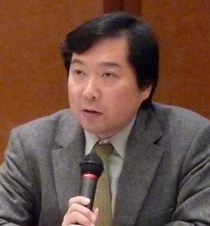
Prof. Hideaki Shiroyama
Director of UTokyo Policy Alternatives Research Institute (PARI) /
Vice Dean / Professor, Graduate School of Public Policy (GraSPP), the University of Tokyo
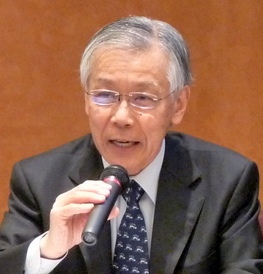
Prof. Dr. Yoichiro Matsumoto
Professor, Graduate School of Engineering / Vice President / Director of the division of Promoting Biomedical Innovation at the Cabinet Secretariat, the University of Tokyo
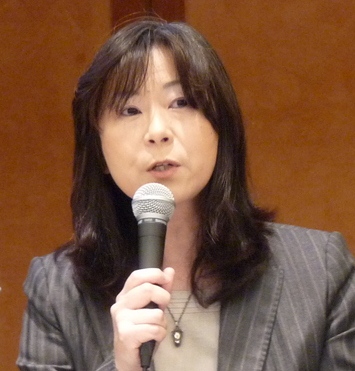
Dr. Mariko Mimura
Director and General Counsel of Novartis (lawyer)
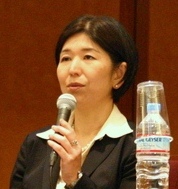
M.D. Ph D. Haruko Yamamoto
Director of the Division of Advanced Medicineand Promoting Clinical Trials, the National Cerebral and CardiovascularCenter
On April 13, 2012, the workshop: “A Vision for Global Regulatory Harmonization in Promoting Biomedical Innovation” was held at the Ito Hall in the University of Tokyo.
The goal of this workshop was to reexamine our understanding of global regulatory harmonization in promoting biomedical innovation and to clarify issues we should tackle.
There were two parts: a keynote speech and a panel discussion. In the former, Mr. Michael Gropp, a leading expert in regulatory harmonization in the medical device sector and one of the steering committee members of the Global Harmonization Task Force (GHTF), gave us a keynote speech entitled “International Regulatory Harmonization and Medical Technology Innovation”, which may be summarized as follows: Regulatory harmonization aims to pool and share intellectual resources and then to promote both R&D investment and innovation to solve unmet needs in medicine and public health. Such innovation is fundamentally important not only for advanced countries but also for developing countries, where medical needs have always been more pressing. In the biomedical sectors, various kinds of regulations have been introduced in every country in the world to provide us with safer, more effective, and higher quality medical technologies. For the future, if economic integration or free trade expands, we must consider the possibilities for global regulatory harmonization in technology. On the other hand, if regulatory oversight (the competent authorities or the market) in each country increases, cooperation and information exchange will be required. If we can minimize the incremental costs of regulatory compliance in an expanding market, we would not only solve unmet clinical and public health needs, but also accomplish sustainable economic growth.
In the panel discussion moderated by Prof. Ryozo Hayashi, Visiting Professor of the Graduate School of Public Policy, the University of Tokyo, prominent professionals joined our debate on regulatory harmonization in terms of how the support of biomedical innovation might further such harmonization. One of the panelists, Prof. Dr. Yoichiro Matsumoto of the Graduate School of Engineering, who is also Vice President of the University of Tokyo and Director of the Division for Promoting Biomedical Innovation at the Cabinet Secretariat, explained one possible vision of a 5-year strategic plan for biomedical innovation. We invited Dr. Haruko Yamamoto, M.D., to explain the opinions of physicians and clinical researchers on the issues we were discussing. Then, Dr. Mariko Mimura, a lawyer, and Prof. Akio Onishi joined to add perspectives from the pharmaceutical and medical device industries. Prof. Hideaki Shiroyama, a researcher on international administration and Director of the UTokyo Policy Alternative Research Institute, the organizer of the Workshop, also took a seat on the panel.
The main discussion topics included: ways of promoting innovation that fully take into account differences between medical technologies, especially those between pharmaceuticals and medical devices; the need for discussing harmonization not only in terms of regulatory affairs but also in terms of both intellectual property and health insurance reimbursement issues; an example of regulatory convergence; transparency in regulations as an important basis for global harmonization; literacy in medical technologies and risk communication; and attracting R&D investment.
Prof. Shiroyama posed four questions, which clarified issues to be considered regarding global harmonization: (1) Can we identify areas where regulatory harmonization might be made easier? (2) Will there be any problems generated by having different frameworks for such harmonization nation by nation? (3) How will we find measures which, in the future, could lower regulatory/compliance costs without reducing safety levels? (4) How, sustainably, do we pay the increasing costs of development and use of medical technologies and are there ways to enable not only developed countries but also developing countries to pay their way in necessary and affordable health care?
Conclusion
This workshop affirmed that regulatory harmonization is an essential tool in the promotion of innovation that will provide the world’s populations with better access to improved medical technologies and help solve hitherto unmet medical needs. Japan must aim to promote biomedical innovation that can provide the Japanese people with the highest levels of healthcare in the world. Enhancing the quality of healthcare will lead to rising patient satisfaction and in turn spur growth in the biomedical industries with the prospect of their becoming one of the main industries in Japan.
We at the UTokyo Policy Alternatives Research Institute (PARI), the University of Tokyo, will continue to do basic research and make public our findings and conclusions on sustainable economic growth towards the creation of a dynamic aging society in Japan, the most rapidly aging society in the world.
(Prof. Chiaki Sato, Project Assistant Prof, Ph D.,
UTokyo Policy Alternatives Research Institute (PARI), the University of Tokyo)


